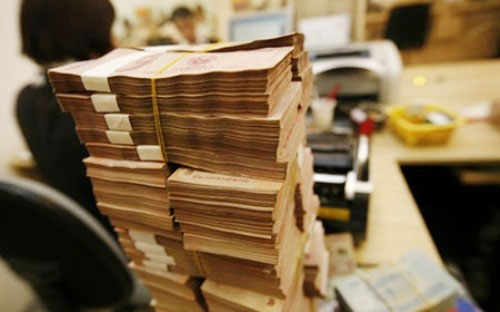VBF recommendation on banking issue

Last week’s Vietnam Business Forum banking work group kept its focus on the banking system’s resolution of non-performing loans through proper risk management and improved corporate governance.
Based on the working group’s (BWG) report, the issue of non-performing loans (NPL) has made progress with the number dropping to 4.46 per cent in June, down from 4.65 per cent in May. They also lauded the completed legal framework for the Vietnam Asset Management Company (VAMC).
According to Sumit Dutta, CEO of HSBC Vietnam and representative of the working group, bad debts were one of the country’s biggest concerns but the VAMC should use care in dealing with collateral assets as transparency will attract investors and help speed up banking system recovery.
“Vietnam is not the only country facing a bad NPL rate, and the important thing is we encourage banks to take on proper risk management structures and to improve their corporate governance. Banks should lend to financially healthy companies with cash flow, not based only on collateral for the loan,” he said.
Responding to a BWG request, central bank deputy governor Le Minh Hung said they will coordinate with the Ministry of Finance to establish and develop a debt market. They will also issue a list of valuation, accounting and auditing firms trusted to determine assets’ true market value. Those companies would help the VAMC handle bad debts more quickly and effectively.
Hung said that in the first nine months of this year NPL growth was 2.2 per cent, well under last year’s 3.91 per cent. Loan loss provisions set aside in the first nine months rose by 2.16 per cent against the end of last year, now at VND77.4 trillion ($3.7 billion). More than VND101 trillion ($4.8 billion) NPLs were settled.
The VAMC has already bought VND14.3 trillion ($680 million) bad debts, and that number is expected to reach VND30-35 trillion ($1.4-$1.6 billion) by the end of the year.
According to Dominic Scriven, representative of the capital market working group at the forum, the VAMC is a new organisation that will be slower than expected in handling bad debts, which will mean lower economic growth.
The capital market group, in a report to the VBF, recommended raising the foreign ownership cap in weak banks to 100 per cent, and 49 per cent in other banks to stimulate and attract foreign investors.
Hung said the State Bank was also requesting the government to issue a new decree raising the foreign ownership cap above the current level. “This shows the State Bank and government are encouraging foreign investors to get involved with local banks,” said Hung from the SBV.
The new decree would replace a current one from April 2007 that dictates individual foreign entities can only own up to 20 per cent in a credit institution. In some special cases, that cap can be exceeded, with approval from the Prime Minister.
What the stars mean:
★ Poor ★ ★ Promising ★★★ Good ★★★★ Very good ★★★★★ Exceptional
Latest News
More News
- Cashless payments hit 28 times GDP in 2025 (February 04, 2026 | 18:09)
- SSIAM and DBJ launch Japan Vietnam Capital Fund (February 04, 2026 | 15:57)
- Banks target stronger profits, credit growth in 2026 (February 04, 2026 | 15:43)
- Vietnam on path to investment-grade rating (February 03, 2026 | 13:07)
- Consumer finance sector posts sharp profit growth (February 03, 2026 | 13:05)
- Insurance market building the next chapter of protection (February 02, 2026 | 11:16)
- NAB Innovation Centre underscores Vietnam’s appeal for tech investment (January 30, 2026 | 11:16)
- Vietnam strengthens public debt management with World Bank and IMF (January 30, 2026 | 11:00)
- Corporate bond market poised for stronger growth cycle (January 28, 2026 | 17:13)
- Vietnam's IPO market on recovery trajectory (January 28, 2026 | 17:04)
















 Mobile Version
Mobile Version